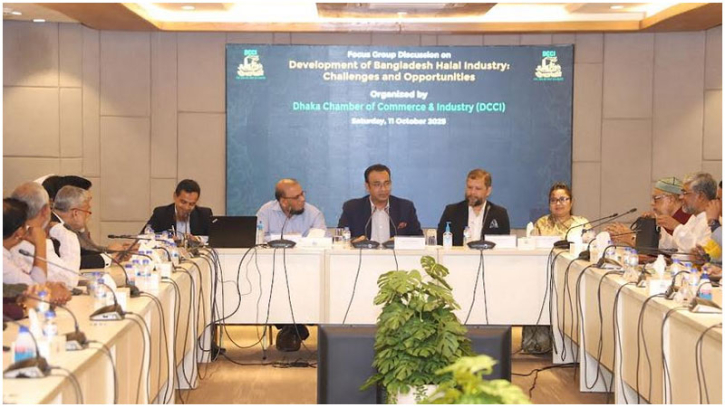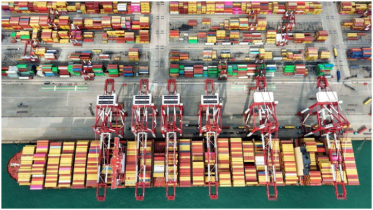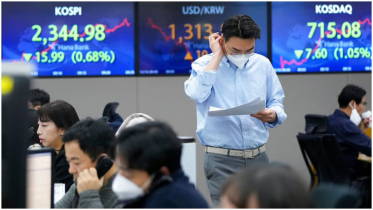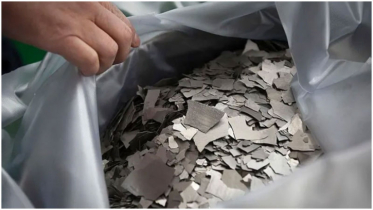Experts urge Bangladesh to harness untapped potentials of halal industry

Experts have emphasized the need for Bangladesh to overcome existing challenges and fully leverage its vast potential in the global halal industry. They called for the establishment of a unified, knowledge-based, and scientifically supported halal ecosystem to help the country achieve greater competitiveness in the international market.
Speaking at a focus group discussion titled “Development of Halal Industry in Bangladesh: Challenges and Opportunities”, organized by the Dhaka Chamber of Commerce and Industry (DCCI) in the capital, the speakers noted that halal products must not only comply with religious guidelines but also meet global standards of purity, safety, and hygiene.
They appreciated the efforts of the Islamic Foundation and the Bangladesh Standards and Testing Institution (BSTI) in advancing halal certification initiatives, which have contributed significantly to the sector’s progress.
In his welcome remarks, DCCI Senior Vice President Razeev H. Chowdhury said the halal industry has evolved beyond a purely religious concept to become one of the fastest-growing segments of the global economy.
He pointed out that while the global halal market is valued at around $3 trillion, Bangladesh’s halal exports stand at only $850 million, mainly comprising agricultural products. He attributed this gap to the absence of a robust halal ecosystem and internationally recognized certification authorities.
Citing projections that the global halal market will reach $9.45 trillion by 2034, Chowdhury stressed that Bangladesh’s growth remains constrained by structural and institutional limitations. “Inadequate compliance with international standards, certification complexities, lack of modern testing laboratories, and a shortage of skilled manpower are major barriers,” he said, urging the establishment of an independent halal certification board to drive sectoral growth.
Presenting the keynote paper, Dr. Mominul Islam, Assistant Professor at the Department of Marketing, IUBAT, said recent stakeholder dialogues in Dhaka and joint programs in Malaysia have laid the groundwork for creating a Halal Industrial Hub in Bangladesh.
He revealed that over 300 institutions in the country have already obtained halal certification. To enhance coordination and policy alignment, he proposed the formation of a national halal authority bringing together the Islamic Foundation, BSTI, academia, and industry. He also advocated incorporating halal education into school and university curricula.
Drawing lessons from Malaysia, Indonesia, and Singapore, Dr. Islam noted that these countries successfully integrated religious principles, scientific research, and national branding into policymaking to strengthen their halal industries. “As a Muslim-majority nation, Bangladesh too can unlock immense opportunities by following a similar model,” he said.
He also emphasized the importance of developing a “Halal Country Brand” for Bangladesh and suggested hosting international halal expos and promoting public-private partnerships (PPPs) to raise global visibility.
Concluding the discussion, participants expressed optimism that through collaboration, ethical practices, and technological advancement, Bangladesh can emerge as a strong player in the global halal market—contributing not only to economic prosperity but also to spiritual fulfillment.
.png)




